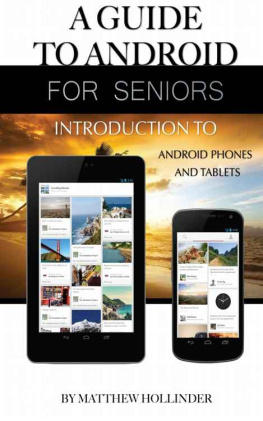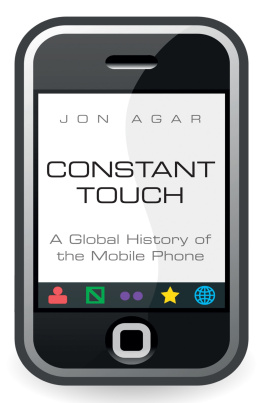CELL PHONE NATION
How Mobile Phones Have Revolutionized Business,
Politics and Ordinary Life in India
ROBIN JEFFREY and ASSA DORON
A comprehensive chronicle of how mobile phones changed Indian lives and in the process Indias economy. Capitalists, ministers, boatmen, farmers, advertising geniuses, porn peddlers, political workers and tireless salesmen populate this story. Jeffrey and Dorons sociological take on the mobile phone as a great leveller is rich and riveting. Sevanti Ninan, editor of The Hoot and author of Headlines from the Heartland
Jeffrey and Dorons landmark study of how the humble mobile phone is changing the culture of Indian democracy in everyday life has no competitors. Their interdisciplinary analysis of popular aspirations and anxieties surrounding mobile telephones will invite and inspire comparative studies set in other emerging economies. A remarkable achievement. Dipesh Chakrabarty, Lawrence A. Kimpton Distinguished Service Professor, University of Chicago
A marvellous book, briskly written and combining a panoptical overview of the broader media landscape with deeply insightful ethnographic vignettes. It has a journalistic brio which makes it highly accessible to a very wide range of readers and a pleasingly part-novelistic, part-filmic, literary style that makes it a rewarding and gripping read. Chris Pinney, Professor of Anthropology and Visual Culture, University College, London
A fascinating, smart and erudite volume on how the Indian cell phone industry developed, and what its extraordinary growth has meant for the country. It can serve as a kind of vade mecum for many thousands of interested readers seeking to learn about the subject whether as amateurs or as specialists entering a new domain. Arvind Rajagopal, Professor of Media Studies, New York University
First published in 2013 by Hachette India
(Registered name: Hachette Book Publishing India Pvt. Ltd)
An Hachette UK company
www.hachetteindia.com

This ebook published in 2013
Robin Jeffrey and Assa Doron 2013
Published in the United Kingdom by C. Hurst & Co. (Publishers) Ltd as The Great Indian Phone Book: How Mobile Phones Have Revolutionized Business, Politics and Ordinary Life in India
Published in the United States by Harvard University Press as The Great Indian Phone Book: How the Cheap Cell Phone Changes Business, Politics, and Daily Life (Assa Doron and Robin Jeffrey, 2013)
Robin Jeffrey and Assa Doron assert the moral right to be identified as the authors of this work
All rights reserved. No part of the publication may be copied, reproduced, downloaded, stored in a retrieval system, or transmitted in any form or by any means without the prior written permission of the publisher, nor be otherwise circulated in any form of binding or cover or digital format other than that in which it is published and without a similar condition being imposed on the subsequent purchaser.
Print HB edition ISBN 978-93-5009-354-2
Ebook edition ISBN 978-93-5009-531-7
For sale in the Indian Subcontinent only
The views and opinions expressed in this book are the authors own and the facts are as reported by them and have been verified to the extent possible. The publisher is not in any way liable for the same.
Hachette Book Publishing India Pvt. Ltd
4th/5th Floors, Corporate Centre
Plot No. 94, Sector 44, Gurgaon 122009, India
Front cover photograph courtesy Getty Images
Cover design by Saffron Design
CONTENTS
Who did you write this book for? a publisher asked us. Ourselves, we replied with as close to one voice as possible, given that Doron was in Australia and Jeffrey in Singapore. But it was true: this is the book we both were looking for in 2008 when the puzzlethe miracle, the in-your-faced-nessof Indian mobile telephony began to strike us every day.
Each of us was teased by memorable first encounters with Indian telephones. For Jeffrey, it was the marriage of two Canadians in New Delhi on a sunny Saturday afternoon in December 1967. After the ceremony, a reception was held in the grounds of a grand old New Delhi bungalow, then occupied by a senior member of the Canadian High Commission. From mid-afternoon, attempts were made to telephone the parents of the bride and groom in Toronto. The project came to resemble a disaster-rescue saga. Occasionally, the person placing the callwe took it in shiftswould break into the conviviality with an announcement: We nearly got through that time. I think I heard someone pick up but it may have been another operator Our operator says perhaps in an hour. Darkness fell, eventually the party broke up, and the call was never completed. That experience was one of the few times Jeffrey had any connection with a telephone during two years in India between 1967 and 1969. The school where he taught in Chandigarh was believed to have a phone, rumoured to be in the principals office, but no teacher had ever heard it ring or heard that it had been used. No one Jeffrey knew had a phone or thought of using one. What, after all, were bicycles, social visits and Indian Post and Telegraphs (IP&T) for?
For Doron, Doron anxiously watched the red-digits displaying the mounting seconds on the electronic clock as he screamed into the mouthpiece in the hope that his voice would carry over the radiowaves to faraway lands. One could easily blow a whole days budget on a single botched call. Unfortunately, all too often the phone conversations in those bright yellow booths ended with an argument over the price and quality of the call. The experience could be unpleasant. For Doron, visiting the local post office to send postcards and sift leisurely through the post-restante mail was the preferred way to communicate with family and friends.
In the first decade of the twenty-first century, all this changed. The take-up of cell phones from 2004 was rocket-like. (We use cell phone and mobile phone interchangeably). By 2012, mobile-phone subscribers in India exceeded 900 million out of a total population of 1,220 million (1.22 billion). On those numbers, three out of every four Indians, from kids to octogenarians, had a mobile phone. And even if we dont take the 900 million figure too seriously (there is a lot of double-counting), and even when we recognise that phones are much less common among rural poor people than urban rich ones, it means that close to half of Indians almost certainly owned a phone. Doron and Jeffrey were like millions of others who came to marvel at daily encounters with these facts and to add to their story-telling repertoire tales that began: The rickshaw guy the other night he was pedalling me home and his phone rang! He stopped and told me to get outhe couldnt take me any farther. His wife wanted him to do another job.
Though we had both used mobile phones in Australia and elsewhere since the mid-1990s, we realised we knew little about themhow they worked, how and where they were made, and who made money from them and how. Such questions provided the motivation for this bookan attempt to piece together the jigsaw of how cell phones came to India and what their impact has been.
We were also struck by the fact that so many individuals we met carried a mobile regardless of whether they were boatmen or high officials. In the West, the smart-phone revolution was beginning to make its mark, but up to then, mobile phones were just another telephone, often associated with work, rather than play. In India, for millions who never had the luxury and opportunity to communicate through a household fixed-line, the arrival of the cheap cell phone was a revolution, and everyone wanted to have at least one in the familyusually the men, but increasingly women too.
Next page
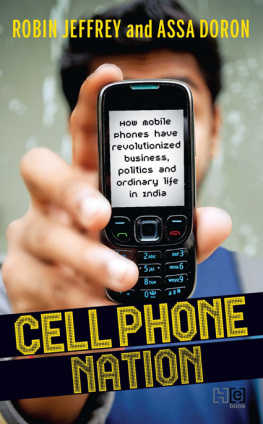

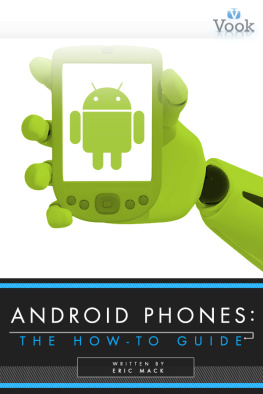
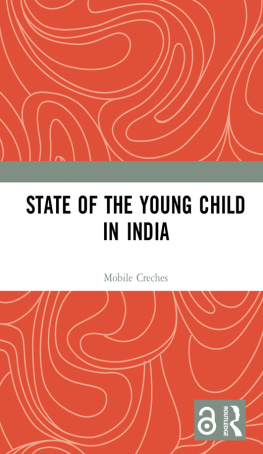
![Hart-Davis - Teach yourself visually Android phones and tablets, [2015]](/uploads/posts/book/212223/thumbs/hart-davis-teach-yourself-visually-android-phones.jpg)


